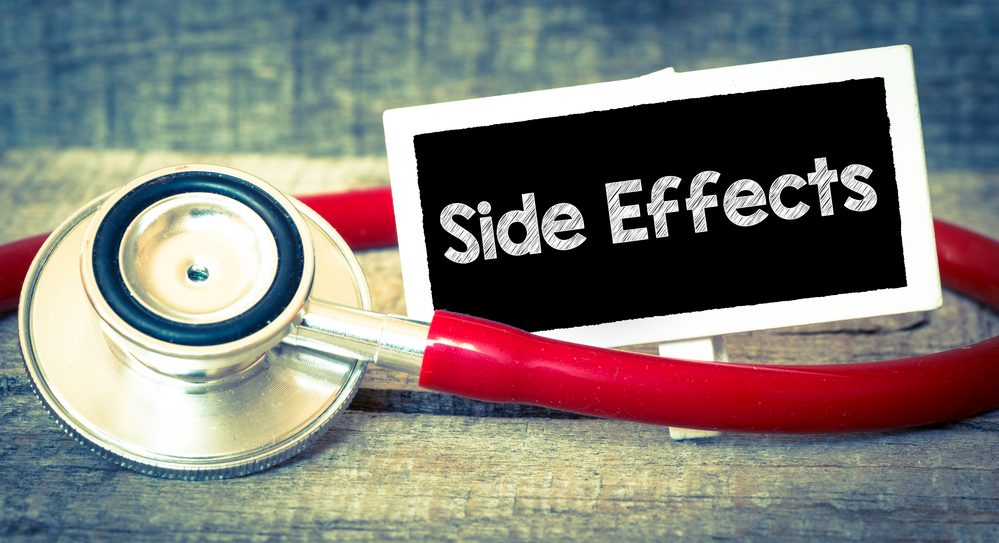As a BetterHelp affiliate, we receive compensation from BetterHelp if you purchase products or services through the links provided
When it comes to managing anxiety, many people have heard of Zoloft and Lexapro. But what is the difference between them? What are the benefits and risks of taking either medication for treating anxiety? This blog post will look at Zoloft vs. Lexapro for anxiety to help you make an informed decision when discussing treatment options with your doctor. We’ll explore how they compare, who should take them, their potential side effects, and whether any alternatives are available. By arming yourself with knowledge about these two medications, you can be better prepared to discuss which one might work best for you or if another option would be more suitable.
Table of Contents:
- What is Zoloft?
- What is Lexapro?
- How Does it Work?
- Side Effects
- Who Should Take It?
- Are There Alternatives?
- How do Zoloft and Lexapro compare?
- The Breakdown
- Who should take Zoloft or Lexapro for anxiety?
- What are the risks associated with taking Zoloft or Lexapro for anxiety?
- Are there any alternatives to Zoloft or Lexapro for treating anxiety?
- How can I talk to my doctor about Zoloft or Lexapro for treating my anxiety?
- Therapy for Anxiety
- FAQs
- Is Lexapro or Zoloft better for anxiety?
- Why would a doctor prescribe Zoloft over Lexapro?
- Which has more side effects Lexapro or Zoloft?
- What is the first drug of choice for anxiety?
- Conclusion
What is Zoloft?
Zoloft (sertraline) is an antidepressant medication used to treat depression, anxiety disorders, and other mental health conditions. It belongs to a class of drugs called selective serotonin reuptake inhibitors (SSRIs). SSRIs increase the serotonin in the brain, which helps improve mood and reduce symptoms of depression or anxiety.
Common side effects associated with Zoloft include nausea, headache, drowsiness, insomnia, dry mouth, diarrhea, or constipation. In some cases, more severe side effects may occur, such as changes in vision or hearing; confusion; muscle twitching; chest pain; irregular heartbeat; difficulty breathing or swallowing; seizures; severe rash or hives. If any of these symptoms are experienced while taking Zoloft, you must contact your doctor immediately for further evaluation and treatment.
Zoloft can also interact with certain medications, so it’s important to tell your doctor about all medications you are currently taking before starting this drug. Additionally, pregnant women should not take Zoloft unless expressly advised by their physician due to potential risks associated with its use during pregnancy.
It is important for people considering using Zoloft for treating mental health issues to discuss their options thoroughly with their healthcare provider before deciding whether this drug is right for them. It is essential to provide your doctor with all the information about medications you are currently taking to avoid potential interactions and ensure that Zoloft will be safe and effective. Additionally, pregnant women should not take Zoloft unless expressly advised by their physician due to potential risks associated with its use during pregnancy.
Zoloft is a common antidepressant medication used to treat anxiety, depression, and other mental health conditions. It can be an effective treatment for many people; however, it’s essential to understand how Lexapro works to make the best decision for your individual needs.
What is Lexapro?
Lexapro (escitalopram, also sold as Cipralex) is an antidepressant medication that belongs to a class of drugs called selective serotonin reuptake inhibitors (SSRIs). It works by increasing the amount of serotonin, a chemical messenger in the brain that helps regulate mood. Lexapro treats depression and anxiety disorders, including generalized anxiety disorder (GAD), panic disorder, social anxiety disorder, and obsessive-compulsive disorder (OCD).
How Does it Work?
Lexapro blocks the brain’s reabsorption or “reuptake” of serotonin. This increases serotonin levels available for use in other body parts. By boosting levels of this neurotransmitter, Lexapro can help improve symptoms associated with depression and anxiety, such as low moods, difficulty concentrating, or sleeping problems.
Side Effects
Like all medications, there are potential side effects associated with taking Lexapro. These side effects generally disappear once your body gets used to the drug, so you may consider starting with smaller doses. Common side effects include nausea, headache, insomnia or drowsiness, and sexual dysfunction. More severe side effects may include changes in behavior such as agitation or aggression; thoughts about suicide; seizures; chest pain; irregular heartbeat; confusion; hallucinations; fever, or sweating. If you experience severe side effects while taking Lexapro, contact your doctor immediately for medical advice.
Who Should Take It?
Lexapro should only be taken under medical supervision after discussing its benefits and risks with your doctor. Your doctor will consider factors such as age group (children under 12 years old should not take it), existing health conditions, and other medications being taken before prescribing it to you. It is important to note that antidepressants like Lexapro do not work immediately – it usually takes several weeks before their full effect can be felt. Hence, patience is critical when starting on them.
Are There Alternatives?
Yes, many alternatives are available if you decide not to take Lexapro. These include lifestyle modifications such as exercise, cognitive behavioral therapy, and psychotherapy. Other medications which could be prescribed instead are Prozac and Zoloft. But, again, speak to your doctor about what would best suit your needs.
Lexapro is a medication that can be used to treat anxiety and depression, but it’s essential to understand how it compares to other drugs like Zoloft before making any decisions. So next, let’s look at how these two medications compare.
How do Zoloft and Lexapro compare?
Both drugs belong to a class of antidepressants known as selective serotonin reuptake inhibitors (SSRIs). They increase serotonin levels, a neurotransmitter that helps regulate mood.
Regarding effectiveness, both Zoloft and Lexapro are equally effective in treating anxiety disorders such as generalized anxiety disorder (GAD) and social anxiety disorder (SAD). However, some people may find one drug more helpful than the other. Talking with your doctor about which medication might be best for you is essential.
The dosage for each drug can vary depending on individual needs. Generally speaking, Zoloft is started at 25 mg per day, while Lexapro is usually started at 10 mg per day. The dose can then be increased gradually until symptoms improve or side effects become too severe. Your doctor will help determine the best amount based on your specific situation and medical history.
Both Zoloft and Lexapro come with potential side effects, including nausea, headache, insomnia, dry mouth, dizziness or drowsiness, sexual dysfunction or decreased libido in men and women alike; weight gain; agitation; restlessness; diarrhea; blurred vision; muscle pain/stiffness/weakness; tremors or shaking hands/feet/legs as well as excessive sweating. Therefore, discussing any concerns you may have with your doctor before starting either medication is essential.
In terms of who should take these medications for anxiety treatment: anyone experiencing persistent feelings of fearfulness or worry should speak with their healthcare provider about whether SSRIs like Zoloft or Lexapro would be appropriate treatments for them, specifically given their unique circumstances.
It is also essential to understand the risks associated with taking these medications, such as increased suicidal thoughts among adolescents aged 18-24 when taking SSRIs such as Zoloft or Lexapro compared to placebo treatment groups, according to studies conducted by Harvard Medical School in 2018. Additionally, there may be interactions between certain foods and beverages consumed alongside these drugs that could cause adverse reactions; therefore, consulting your physician before beginning any new regimen is highly recommended.
Finally, suppose someone wishes not to take prescription medications. In that case, they have alternatives such as cognitive behavioral therapy (CBT), mindfulness meditation techniques, exercise programs, yoga classes, herbal supplements, and dietary changes. All of these could provide relief from anxious feelings without resorting to using pharmaceutical products.
If considering trying out either Zoloft or Lexapro, it is always wise to consult one’s primary care physician first to get an accurate diagnosis and personalized plan tailored towards addressing the underlying causes behind why this person is feeling anxious in the first place. Doing so will ensure that proper precautions are taken to maximize the chances of success while minimizing the risks involved.
Zoloft and Lexapro are the most commonly prescribed medications for treating mental health issues. Both drugs are selective serotonin reuptake inhibitors (SSRIs), meaning they increase serotonin levels in the brain, which can help improve mood and reduce symptoms such as anxiety or depression.
Effectiveness: Zoloft is generally more effective than Lexapro at relieving symptoms of depression, while both drugs are equally effective in treating anxiety disorders. However, it’s important to note that individual responses may vary and that different people may respond better to one drug over another.
Dosage: The recommended dosage for Zoloft is 25-200 mg per day, while the recommended dosage for Lexapro is 10-20 mg per day. It’s important to talk with your doctor about what dose would be best for you based on your needs and medical history.
Side Effects: Common side effects of both drugs include nausea, headache, insomnia, drowsiness, dry mouth, and sexual dysfunction. Additionally, there have been reports of increased suicidal thoughts among people taking SSRIs like Zoloft or Lexapro; if this occurs, it’s essential to seek immediate medical attention from a qualified professional who can provide appropriate care and support.
Both Zoloft and Lexapro have commonly prescribed medications for anxiety, but they have different side effects and work in slightly different ways. To understand which is best for you, it’s essential to look at who should take each medication.
The Breakdown
Here’s a breakdown of Zoloft and Lexapro to give you the gist of their use.
| Zoloft | Lexapro | |
| Use | Post Traumatic Stress Disorder, Obsessive-Compulsive Disorder, Depression, Panic Disorder, Social Anxiety Disorder, Premenstrual Dysphoric Disorder | Depression, Generalized Anxiety Disorder |
| Side Effects | Nausea, Diarrhea, Trouble Sleeping, Dry Mouth, Sexual Difficulties, Tiredness, Dizziness, Weight Gain | Drowsiness, Dizziness, Nausea, Upset Stomach, Constipation, Sexual Difficulties, Weight Gain |
| Interactivity | MAOIs, Other SSRIs | MAOIs, Other SSRIs |
Who should take Zoloft or Lexapro for anxiety?
Both drugs belong to a class of medications called selective serotonin reuptake inhibitors (SSRIs). SSRIs increase serotonin levels, a neurotransmitter that helps regulate mood.
When treating anxiety, both Zoloft and Lexapro can be effective options. They may be prescribed for generalized anxiety disorder (GAD), panic disorder, social anxiety disorder, or obsessive-compulsive disorder (OCD).
The decision about which medication is best for an individual should be made between them and their doctor. Factors such as age, medical history, other medications being taken, potential side effects, and cost should all be considered when making this decision.
For people with GAD or OCD who have not responded well to other treatments such as psychotherapy or lifestyle changes alone, either Zoloft or Lexapro may help reduce symptoms like worry or fear associated with these conditions. In addition, people with panic attacks may also benefit from taking one of these medications with therapy or lifestyle modifications.
People who suffer from social anxiety might find relief from taking either Zoloft or Lexapro as well. However, they should also consider cognitive behavioral therapy (CBT) alongside the medication if possible since CBT has been shown to improve outcomes even more than just using medication alone in some cases.
It is important to note that while both drugs can relieve symptoms related to various types of anxiety disorders, they do not cure them completely. Therefore, it is essential for individuals taking either drug long-term to continue working closely with their doctor so necessary adjustments can be made if needed.
It is essential to consult a doctor before taking Zoloft or Lexapro for anxiety, as they can help determine the best option for an individual’s needs. Next, we will look at the risks associated with taking these medications.
What are the risks associated with taking Zoloft or Lexapro for anxiety?
The use of Zoloft and Lexapro for treating anxiety can be helpful, but it is essential to understand the potential risks associated with taking these medications.
Common side effects of both drugs include nausea, headaches, drowsiness, insomnia, dry mouth, and sexual dysfunction. However, these side effects are usually mild and generally, go away as your body adjusts to the medication.
In rare cases, more severe side effects can occur, such as changes in mood or behavior (including suicidal thoughts), difficulty breathing or swallowing seizures, or an irregular heartbeat. You should contact your doctor immediately if you experience any of these symptoms while taking either drug.
Both Zoloft and Lexapro also have interactions with other medications that could cause dangerous reactions if taken together. Hence, it’s important to tell your doctor about all medications you are currently taking before starting either one. Additionally, alcohol consumption should be avoided when using either drug as this can increase the risk of specific side effects such as dizziness or drowsiness.
Finally, there is some evidence that suggests long-term use of SSRIs like Zoloft and Lexapro may lead to decreased bone density which increases the risk for osteoporosis over time; however, further research needs to be done on this topic before definitive conclusions can be made.
It is essential to discuss all potential risks associated with taking Zoloft or Lexapro for anxiety with your doctor before beginning treatment so that you can fully understand what possible outcomes might result from their use. This will enable you to make an informed decision about whether they are right for you.
It is crucial to consider the risks associated with taking Zoloft or Lexapro for anxiety, but alternatives are also available. Let’s take a look at some of those options now.
Are there any alternatives to Zoloft or Lexapro for treating anxiety?
Medication is not the only option available for treating anxiety. Various other options can be explored, such as therapy and lifestyle changes.
Therapy: Cognitive Behavioral Therapy (CBT) is an effective form of psychotherapy for treating anxiety disorders. CBT helps individuals identify and challenge negative thoughts that lead to anxious feelings or behaviors. It also teaches them new coping skills for managing stressors in their lives. Other forms of therapy, such as Dialectical Behavior Therapy (DBT), may also be beneficial in treating anxiety disorders.
Lifestyle Changes: Making positive lifestyle changes can help reduce symptoms of anxiety, including getting regular exercise, eating a healthy diet, reducing caffeine intake, avoiding drugs and alcohol, practicing relaxation techniques like deep breathing or meditation, and getting enough sleep each night. Additionally, developing healthier relationships with family members and friends can help create a more supportive environment which can reduce stress levels associated with social situations that often trigger anxious feelings or behaviors.
Some people find relief from alternative treatments such as acupuncture or yoga/tai chi classes helpful in managing anxiety symptoms. In addition, herbal supplements like kava root extract are useful in some cases; however, it is crucial to speak with your doctor before taking any herbal supplement since they may interact negatively with certain medications you are already taking for your condition or cause other side effects if taken incorrectly or too frequently over time.
Finally, it is essential to remember that everyone responds differently to treatment plans. What works best for one person may not work well for another. It is best to talk openly about your needs with your doctor so they can recommend the most appropriate plan based on your unique situation.
It is essential to consider all options when looking for an effective treatment for anxiety, and discussing these alternatives with your doctor can help you make the best decision. So now, let’s look at how to talk to your doctor about Zoloft or Lexapro as a possible treatment option.
How can I talk to my doctor about Zoloft or Lexapro for treating my anxiety?
Talking to your doctor about Zoloft or Lexapro for treating anxiety can be intimidating. However, it’s important to remember that your doctor is there to help you and wants what’s best for you. Here are some tips on how to have a productive conversation with your doctor:
Be Prepared: Before the appointment, write down any questions or concerns you may have so that they don’t slip your mind during the visit. Also, make sure to bring a list of all medications and supplements you are currently taking, as this could impact which medication might be best suited for you.
Be honest with your doctor about how long you’ve been dealing with anxiety, when it started, and how it affects daily life. This will give them an idea of what treatment would work best for you in terms of dosage and duration.
Ask Questions: Don’t hesitate to ask questions if something isn’t clear or if something else needs clarification from the doctor’s explanation. Ensure everything is understood before leaving the office so there aren’t any misunderstandings later on regarding side effects, interactions, etc.
Research Options: Research both Zoloft and Lexapro beforehand so that when talking with your doctor, they know which one has more potential benefits than risks based on personal preferences or medical history (if applicable). Doing research ahead of time also helps ensure an informed decision between patient and physician rather than relying solely on their opinion alone without knowing all available options first-hand.
Express Concerns: If specific side effects are associated with either medication, such as weight gain or sexual dysfunction, then express these concerns openly so that alternatives can be discussed if necessary. Such as lifestyle changes like exercise and dietary modifications instead of immediately jumping straight into prescription drugs without exploring other possibilities.
Take notes during appointments to keep track of information given by doctors; this way, nothing gets forgotten over time due to memory lapse (especially since anxiety can cause forgetfulness). Additionally, follow-up appointments should always be scheduled after starting new medications to monitor progress throughout the treatment process – especially when it comes down to deciding whether Zoloft or Lexapro works better, depending upon individual circumstances.
Talking to your doctor about which medication is proper for you is essential in treating anxiety. It’s also important to consider other therapies that can help manage your symptoms and provide additional support. Let’s take a look at some of the different therapy options available.
Therapy for Anxiety
Therapy is an excellent option for those looking to treat their anxiety. It can be used in conjunction with medication or as an alternative. Therapy helps individuals identify and work through the root causes of their stress, allowing them to develop coping strategies tailored to their needs.
One type of therapy often used to treat anxiety is cognitive-behavioral therapy (CBT). This type of therapy focuses on identifying negative thought patterns and behaviors that contribute to one’s anxiety, then working on replacing these thoughts and behaviors with more positive ones. CBT also encourages problem-solving skills, which can help people manage difficult situations without becoming overwhelmed by anxious feelings.
Another form of therapy used for treating anxiety is exposure therapy. This treatment involves gradually exposing oneself to the source(s) of fear or worry to reduce its intensity over time. For example, exposure therapies may involve imagining scenarios, visiting places associated with fear or worry, or engaging in activities that trigger anxious feelings, such as public speaking or socializing with strangers. Through repeated exposure, individuals learn how better cope when faced with challenging situations and ultimately become less fearful overall.
If attending traditional counseling sessions isn’t convenient due to location or scheduling conflicts, there are now many online options available for receiving mental health care from licensed professionals via video chat platforms like Skype and Zoom. These services provide a safe space where individuals can discuss issues related to their mental health while maintaining privacy and convenience at home if needed.
When considering any treatment for managing anxiety, it is essential to find something that works best for you and seek professional guidance from a qualified therapist specializing in this area. This way, they can provide personalized advice based on your specific needs and goals.
FAQs
Is Lexapro or Zoloft better for anxiety?
It is difficult to answer this question without knowing more about the individual’s specific needs and preferences. Generally speaking, both Lexapro (escitalopram) and Zoloft (sertraline) are considered effective treatments for anxiety. The decision of which is better for an individual should be made in consultation with a doctor or mental health professional who can evaluate their situation and determine which medication may work best for them.
Why would a doctor prescribe Zoloft over Lexapro?
Zoloft and Lexapro are selective serotonin reuptake inhibitors (SSRIs) used to treat depression, anxiety, and other mental health issues. The primary difference between the two is that Zoloft has a longer half-life than Lexapro. This means it stays in the body for a more extended period after being taken, providing more consistent effects throughout the day. Additionally, Zoloft may be better tolerated by some people due to its lower potential for side effects such as nausea or headaches than Lexapro. Ultimately, your doctor will consider your individual needs when deciding which medication is best for you.
Which has more side effects Lexapro or Zoloft?
Both medications can cause side effects such as nausea, headache, insomnia, dry mouth, sexual dysfunction, drowsiness, or fatigue. Generally speaking, the side effects of both drugs are similar in severity and frequency; however, some evidence suggests Lexapro may be more likely to cause weight gain than Zoloft. Additionally, some people report feeling more anxious when taking Lexapro than Zoloft. Therefore, individuals considering either medication must speak with their doctor about potential risks and benefits before starting treatment.
What is the first drug of choice for anxiety?
The first drug of choice for anxiety is typically a selective serotonin reuptake inhibitor (SSRI). SSRIs are the most commonly prescribed type of antidepressant and work by increasing serotonin levels in the brain, which helps reduce symptoms such as worry, irritability, and restlessness. Other medications may be used depending on the severity or cause of an individual’s anxiety. Speaking with your doctor about what drug might be best for you is crucial.
Conclusion
In conclusion, Zoloft and Lexapro are two medications that can be used to treat anxiety. However, both have benefits and risks, so you must talk to your doctor about which is best for you. It is also necessary to consider other options, such as therapy or lifestyle changes, before deciding on a medication like Zoloft or Lexapro for treating anxiety. Ultimately, the decision to take Zoloft vs. Lexapro for anxiety should be made in consultation with your doctor based on your individual needs and circumstances.
If you or someone you know suffers from anxiety, it’s essential to seek help. Two common medications are used to treat this condition: Zoloft and Lexapro. Both have been proven effective in reducing anxiety symptoms, but they differ slightly in their side effects and effectiveness for specific individuals. Discussing your options with a mental health professional can ensure that you make an informed decision about which medication will best suit your needs. So don’t wait any longer – get started toward feeling better today!
- Breaking the Silence: Why Men’s Mental Health Matters More Than Ever - April 15, 2025
- How to Transform a Home’s Patio Space into a Relaxing Space - March 23, 2025
- 5 Strategies to Use a Cell Phone to Help Manage Your Stress - March 23, 2025
This site contains affiliate links to products. We will receive a commission for purchases made through these links.






.jpg)


